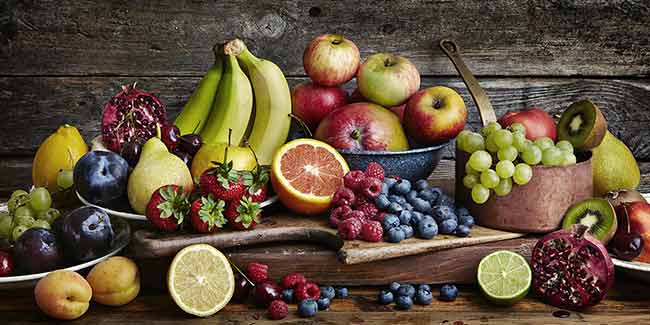
Navratri is a Hindu festival dedicated to Goddess Durga, Saraswati and Lakshmi. It is largely followed in the northern part of India. During the nine days of Navratri, devotees fast while restricting themselves from intake of certain foods. These restrictions promote good health but to get the maximum health benefits you must be aware of what all is allowed during Navratri fast.

Flours
Flours that can be eaten during Navratri include buckwheat (Kuttu ka atta), sighare ka atta, rajgiri ka atta, saboodana and arrowroot.
Fruits
During Navrati fast you can eat all the fruits. Raw banana, water chestnut (Singhade), pears (nashpati), coconut and pomegranate (anar) are some of the healthy fruits that people who are fasting.
Vegetables
Potato, pumpkin (Bhopla), sweet potato, colocassia (arbi), raw papaya, curry patta, lemon and Yam (suran) are some of the vegetables that provide enormous health benefits to people on fast. Navratra fast allow you to have all the vegetables with the exception of wheat grass. Fresh coriander and ginger are also allowed during Navratri fasts. While preparing vegetables make sure that you don’t make use of onion and garlic as they are strict ‘no’ during Navratri.
Salt
During Navratri replace your chemical salt with rock salt (sendha namak). Rock salt is a large grains salt that is mainly used during fasting. There are enormous health benefits of sendha namak. In the ayurvedic medicine it is used as cooling spice to aid laxative and digestive system. For the entire nine days of navratri use of chemical salt is not allowed.
Spices and oil
Black zeera (cumin), choti elaichi, khash khash, water melon seeds and sabut kali mirch are some of the spices that are allowed during Navratri fasting. You can use olive oil and desi ghee to cook Navratri food.
Dry fruits
Almonds (badam), walnuts, cashew and raisins (kishmish) are allowed during Navratri fasting.
Beverages
During Navratri fast one can have green tea, black tea and coffee.
Dairy products
Milk products such as milk, yoghurt, cream and paneer is allowed during Navratri fasting. By using the milk products you can make singhade ka halwa or sabudana kheer. Sabudana is a rich source of carbohydrates and gives good amount of energy to your body.
Other foods
Sugar, makhanna and sabudana are some of the other healthy foods that can be taken during Navratri.
Top Image Source: Getty
Read more articles on Festival Fever.
For more such stories, Download Onlymyhealth App.
Read Next
Healthy ways to fast this Navratri
How we keep this article up to date:
We work with experts and keep a close eye on the latest in health and wellness. Whenever there is a new research or helpful information, we update our articles with accurate and useful advice.
Current Version